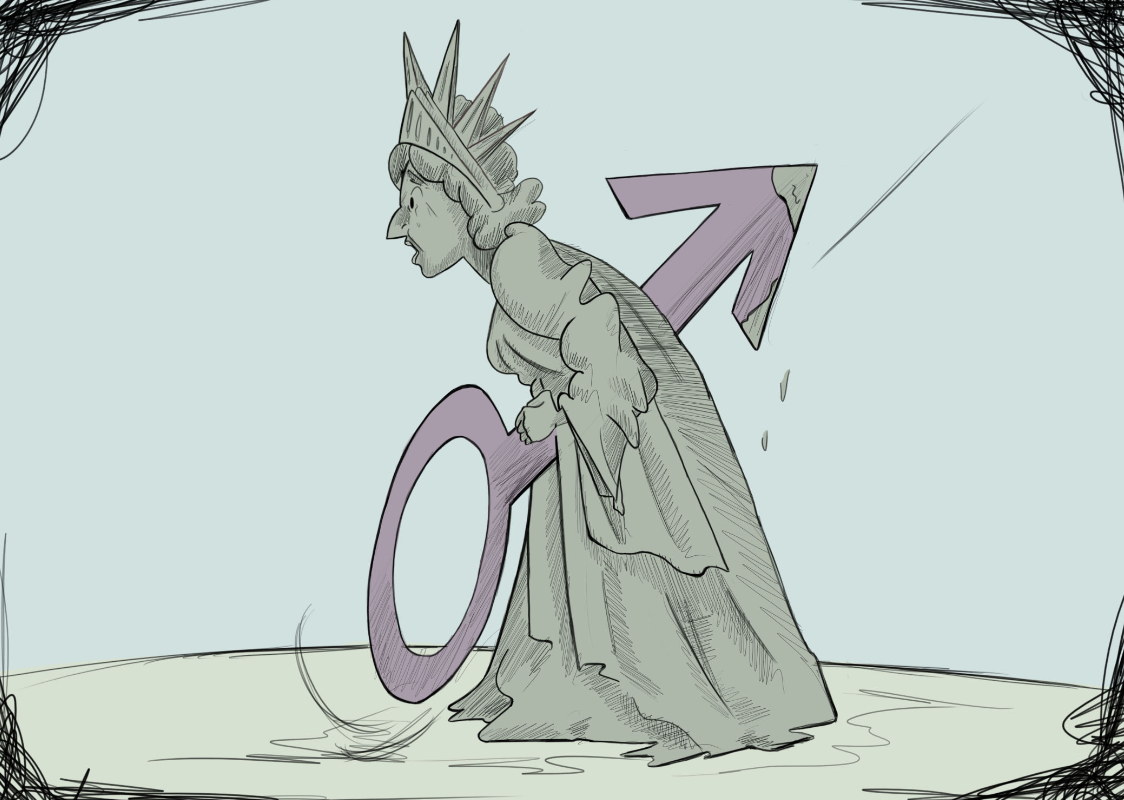Editor’s note: This article is a part of a head-to-head. Read the other article here.
U.S. Rep. Alexandria Ocasio-Cortez, D-New York, unseated a 10-term incumbent running on what many called a “radical” agenda. When she learned of her victory, a reporter asked, “What about the folks who say, ‘Listen, she’s too radical’?” She responded, simply, “There is nothing radical about moral clarity.”
Social justice movements throughout American history were at one time considered radical. Consider the American Revolution, abolitionism, the labor movement, first-wave feminism and gay liberation.
Each of these societal developments was a response to an injustice. They disrupted the status quo and were met with ardent opposition. Paradoxically, each are steeped in the values that America supposedly champions. The documents that we look to for guidance — the Constitution and the Declaration of Independence — clearly outline moral principles that demand equality. These movements appeal to those founding principles and are wholly American. There is nothing more American than a radical movement.
In a digital age, it’s become easy to feel as though we’re contributing to a movement by taking to Twitter or Facebook to express our distaste of the status quo. Some who might disagree or think that this is a vain façade of action throw around the term “social justice warrior” to undermine and mock those seeking progress.
The latest feminist movement has become a target of this mockery. Feminism in the 21st century has its flaws. Rifts emerged among the organizers of the Women’s March over what the movement should signify and who should be the face of it. Questions of “who are we really marching for?” or “who needs this march the most?” exemplify internal struggles that many social movements have faced.
While fourth-wave feminism is not perfect, it’s still very much needed. It’s another shot at the oppressive, white patriarchy that America was founded upon. Every American social movement is an attempt to correct and align the America we live in with the America that is described in our founding documents. We’ve done a fantastic job at digging ourselves out of the America in which only white men who owned property could vote, but we’ve yet to achieve true equality.
The #MeToo movement illustrates an aspect of America that we should be ashamed of and underscores the need for contemporary feminism. I don’t mean to discredit the men who have been wronged and participated, or didn’t, in the #MeToo movement. However, women clearly jump-started it and claim it.
Misogyny ran rampant and went unquestioned for far too long. It continues today. It’s our job, firstly as humans and secondly as Americans, to put an end to the injustices that historically marginalized groups still face. I acknowledge that I’m a white young man blessed with a privileged upbringing writing about women’s issues.
However, I, like many, become infuriated when a Stanford swimmer can rape an unconscious woman behind a dumpster and receive a six-month jail sentence, or when a Baylor fraternity president can rape a drugged woman and receive no jail time, or when a Hollywood giant can assault women for decades and go unquestioned. I’m especially disgusted and impelled to speak out when a wealthy celebrity can brag about assaulting women and become our President.
Liberty, equality, justice and the pursuit of happiness are not radical principles. They’re moral paradigms that we’ve championed since 1776. This moral clarity isn’t new, but its tangible exemplification has been missing.
Call me a “social justice warrior” if you’d like, but I’m comfortable with speaking out against injustice when we have so much work left to do. If fulfilling my obligation as a human and as an American categorizes me as a radical or as a social justice warrior, then so be it. I’m proud to be one.
James Smith is a 22-year-old mass communication senior from Grand Coteau, Louisiana.
Opinion: Feminist movement not radical, demands true equality
By James Smith
January 26, 2019
cartoon







